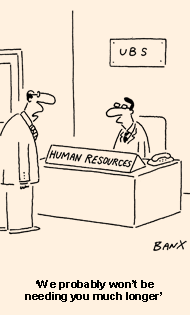Gangnam Style exposes Seoul’s folly
Roula Khalaf, Editor of the FT, selects her favourite stories in this weekly newsletter.
Gangnam Style, the YouTube sensation with 600m viewers, must have come as an unexpected godsend to one of South Korea’s more peculiar institutions: the Presidential Council on Nation Branding.
During my years as the FT’s correspondent in Korea, I was grilled on panels and radio shows about why I thought such a well-intentioned body was redundant. This was sensitive territory. South Koreans are rightfully indignant that they have been overshadowed by China and Japan despite everything their rags-to-riches nation has achieved.
They certainly do deserve a better global image. However, interference from a state body should belong to a bygone era of central planning and output targets. You cannot forge soft power in the same way as you pick industrial champions. Absurdly, Korean officials insisted the G20 summit in Seoul in 2010 – a technical meeting about global economic policy – would raise the popularity of the national brand.
My argument ran that Korea’s breakthrough would arrive as a big cultural accident, unaided by bureaucrats. Seoul’s government is notorious for its lack of faith in its own people, who are even forbidden to read North Korean websites, but I argued it should just leave its people to their own devices and accept that Korean panache would shine through unexpectedly. I guessed the turning point would be a film. Maybe a sportsperson. (For me, Shin A-lam, the tearful Olympic fencer who spent a lonely, hour-long vigil of protest on the piste believing she had been robbed of a medal epitomised the pride and burn-yourself-to-ashes passion of the real Korean brand.)

Korea’s accidental blockbuster finally came through a burly 34-year-old rapper called PSY. Now that Ai Weiwei, the Chinese dissident artist, and Boris Johnson, London’s mayor, have joined those clip-clopping through the lasso-swirling Gangnam Style dance steps, the folly of government strategy has been exposed. If you need evidence that you can’t control how people connect emotionally with your country, the randomness of Gangnam Style is it.
The broader lesson from Gangnam Style is that it is many miles from the manicured, sanitised view of Korea that the apparatchiks have sought to project. PSY looks more like a ssireum wrestler than a pop star. He sings from the toilet, goes to the sauna with gangsters and pokes fun (albeit very gently) at some of his country’s social pressures. There’s an earthiness and boisterousness here that state tourism and branding officials have always tried to shun. They need to learn to engage with it.
A visit to a Korean palace provides a perfect example of where the state is going wrong. Official guidebooks are turgidly unreadable. You may be on the spot where Empress Myeongseong was murdered by the Japanese or Crown Prince Sado was sealed into a rice chest but the visitors’ pamphlet will only tell you what you can see with your own eyes: that the courtyard is 20m wide and the colonnade is red. The state scripts are risk averse, seeking seek to avoid upsetting anyone and shirk references to the country’s more colourful but darker recesses. Problematically though, that’s just what interests people. After all, visitors to London are steeped in the lore of Sherlock Holmes, Jack the Ripper and beheadings at the Tower.
By contrast, guidebooks present Korean culture as a serene bubble from the Chosun dynasty (1392-1910). Wild days out are to be had at ginseng festivals and celadon exhibitions. PSY has burst that bubble. Korean culture is fun, but it’s also often gritty, edgy and berserk.
Obviously, connecting with the murkier part of Korea’s national story touches recent wounds. But in terms of a brand, that is what sets Korea apart. The branding council wants to focus on the Korean script and cooking. But Ethiopia and Bulgaria have equally interesting alphabets and food. What makes Korea special and helps explain its transformation into an international heavyweight is its tale of fratricidal war in the 1950s and its battle for democracy in the 1980s. The epic saga of how it went from having per capita income less than half of Ghana’s until the 1960s to being the world’s seventh-biggest exporter is an inspiring but brutal narrative.
It’s futile asking Seoul’s bureaucrats to retreat from trying to forge a national brand but they must ditch their cosmetic, picture-postcard portrayals of “The Land of Morning Calm”. As PSY has shown, Koreans win hearts when that serenity is shattered. Korea’s mandarins would rather you didn’t really encounter their hard-drinking, rumbustious country and its troubled past. But it is Korea’s ribald and unromanticised reality that will ultimately boost the brand.
Comments